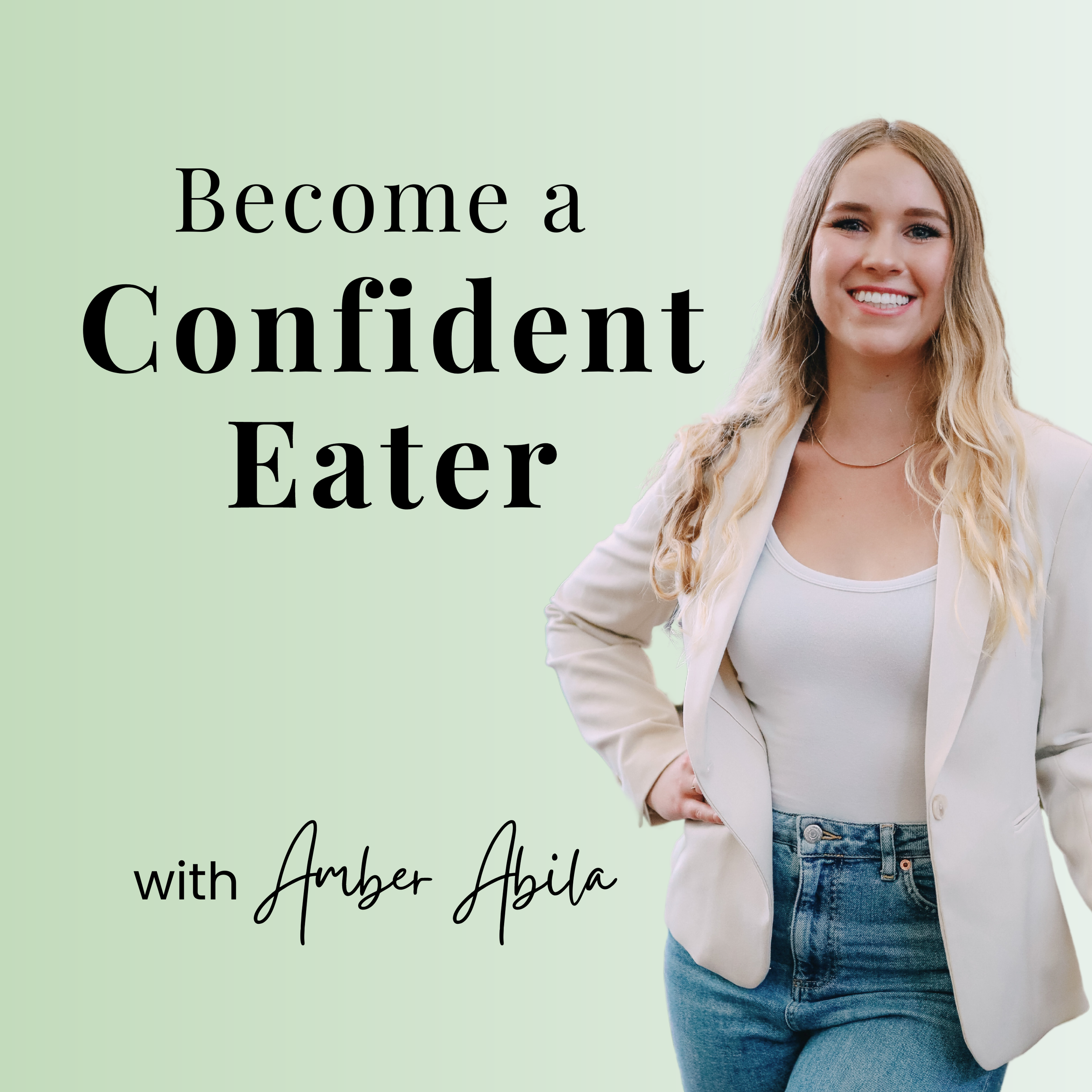Ep 65- From Bingeing Oreos to Forgetting About Them For Weeks- Jen’s Story
May 08, 2025
Today you’ll get to hear from Confident Eater Program client, Jen, as she shares how she went from standing at the counter stress eating to actually enjoying her food. After years of trying to stop overeating on her own, she had a moment that made her realize she couldn’t wait any longer to heal her relationship with food.
Join us to hear…
Where fear of hunger stems from & how she overcame it
Why calorie counting & intermittent fasting weren’t enough to stop overeating
What helped her stop mindlessly snacking after work
How she overcame her fear of keeping “trigger foods” like Oreos and Costco-sized chips in the house
How binge eating recovery improved not just her eating habits, but also her finances, time management, and self worth
After years of telling herself “I’ll fix this next month,” Jen finally hit a moment she couldn’t ignore: standing at the office counter, eating on autopilot even though her stomach felt off. That decision led her into the Confident Eater Program, where she went from stress-snacking at the counter to peaceful, plated meals…and a half-eaten sleeve of Oreos sitting untouched in her pantry for weeks.
Jen before: “I kept trying the same things and hoping they’d eventually work”
Jen had tried calorie counting, intermittent fasting, and food logs. She also loved working out, but the math still wasn’t mathing: lots of effort, not the results she wanted, and a house that couldn’t safely contain her “fun foods.” The turning point came during a week of catered meals at work, when she realized she was eating when she wasn’t even hungry. That moment of discomfort pushed her to finally get help instead of putting it off yet again.
Where fear of hunger started (and how she ended it)
Childhood “clean your plate” rules and snack limits planted the idea that when food was available, she had to eat as much as she could. Later, dieting reinforced that scarcity story. In the program, Jen began to see hunger as safe, temporary body intel—not an emergency. She learned she could stop at fullness and still have more food later. That shift dissolved the panic that used to drive her to overeat.
Why calorie counting and fasting didn’t work
Numbers can’t teach you to trust your body. Apps made Jen feel restricted on some days and overcompensating the next. What finally worked was honoring her built-in “calorie counter”: her hunger and fullness signals. Once she began trusting those cues, overeating lost its grip.
The after-work snack spiral
Jen’s old routine was to get home, let the dogs out, then stand at the counter eating while scrolling her phone. That “reward” left her distracted, zoned out, and less likely to do the things she really valued in the evenings. A few simple tweaks—plating her food, sitting down, and leaving her phone aside—turned meals into a chance to reset. She began tasting her food, feeling satisfied sooner, and using her evenings more intentionally.
Oreos and Costco chips: from “trigger” to “meh”
At first, Jen resisted buying her trigger foods, afraid she wouldn’t trust herself. But when she finally brought Oreos home, they lasted for weeks. She noticed that eating them often gave her a headache, and with the permission to always have more later, the urgency disappeared. Some days she would plate two cookies with a spoonful of peanut butter and feel satisfied. Other times, she realized she’d rather enjoy her homemade cookies instead. That shift—telling the truth about how foods actually felt in her body—was what made the cravings fade.
How changing her eating changed everything else
Healing her relationship with food didn’t just stop binges. Jen noticed her finances improving, since she was spending less on impulse snacks and fewer grocery runs. She managed her time better, felt calmer in her evenings, and even set stronger boundaries in her relationships. One of her favorite moments was realizing, “I haven’t binged in months”—something she hadn’t noticed until she stopped to celebrate her wins.
The result
Jen went from standing at the counter with Costco-sized snacks to enjoying calm, intentional meals. From feeling like food was in control to realizing, “I can trust myself around Oreos.” From scarcity and guilt to confidence and freedom.
Ready for your “Oreos in the pantry for weeks” moment?
If you’re tired of trying harder at the same strategies and ready to feel calm and confident around food, I’d love to help. Inside the Confident Eater Program, we retrain your brain’s cravings, rebuild trust with hunger and fullness, and make “trigger foods” boring—so natural, normal eating becomes effortless.
Book your free consultation to see if it’s a fit. Your future self will thank you.
